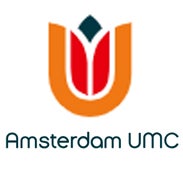“Eating, drinking and taking drugs have historically been things we do because they’re rewarding,” says Vrije Universiteit Amsterdam professor Taco de Vries. “They give us a pleasant feeling. And anything that makes us feel good, we want to continue doing. Even if we know it’s bad for us.” That’s because our brain is focused on reward, claims the addiction expert. Addictive substances, like alcohol, cigarettes and sugary foods, affect our reward system much more strongly than natural rewards, like taking a walk, having sex or doing something fun with friends. And with that strong craving for substances that aren’t good for us, addiction is never far behind. “That’s what makes them dangerous,” says De Vries.
According to the neurobiologist, what also doesn’t help is that addictive substances are readily available, everywhere you look. “You only have to walk through the city and you’ll see unhealthy food all around you or advertisements for beer brands. And with the rise of vaping, there’s still plenty to tempt smokers, too.”
Addicted in no time
The facts speak for themselves. According to professor Taco de Vries, if you start smoking, you’ll be addicted in no time. “Nicotine is the most addictive substance we know of,” he says. “The likelihood of becoming addicted after starting smoking is one in three. That makes nicotine more addictive than heroin.” A smoke-free generation still seems like a distant goal. A quarter of young people and a fifth of adults in the Netherlands still smoke. And although the bright colours and seemingly “clean” smoke of vaping may suggest otherwise, De Vries argues that we should not see vapes as an alternative to cigarettes. “Vaping is also highly addictive because it contains nicotine. And anything you put into your lungs is unhealthy.”
When it comes to alcohol use, addiction rates are lower, but still as much as 10% of the Dutch population drinks alcohol excessively (source: Trimbos). “We associate alcohol with enjoyable moments like celebrations and social gatherings, but alcohol also has significant harmful effects,” says De Vries. This knowledge does not seem to be widespread. “People are unaware – or perhaps unwilling to acknowledge – that alcohol can also cause cancer. And we know that there are indications that alcohol use can lead to dementia and Alzheimer’s.”
Loss of control
The dangers of substances like alcohol and smoking are indisputable. But even with a damaged liver and black lungs, we continue to use them. “It all has to do with losing control over your own behaviour,” says De Vries, “and that’s an important symptom of addiction.” The environmental triggers and withdrawal symptoms make it difficult for people with addictions to quit. According to De Vries, something else also happens in the brain: “When you quit, you remain sensitive to everything associated with the use of that substance. The craving doesn't stop, but actually gets worse – especially in the first year. We know that 90% of people who quit relapse within a year.”
Government not doing enough
Taco de Vries notes that the government primarily focuses on prevention. Rolling out informational campaigns, reducing sales points, introducing smoke-free zones and raising excise taxes all fall into this category. “These are relatively easy measures that don’t cost much money. But they also don’t reach the two million people who are already addicted. You shouldn’t assume that these people can or will quit on their own, because that simply won’t happen,” says the addiction expert. He argues that the government should be able to offer them a decent route to recovery. There’s a price tag attached, but addiction itself already costs our society billions. “The societal costs associated with smoking and drinking already amount to over €30 billion. Together, they account for almost 10% of the total disease burden in the Netherlands.”
That's why professor Taco de Vries and other scientists recently have written a report advocating for structural funding for addiction research. A Letter to Parliament has been drafted on this matter, which is expected to be discussed this summer.


